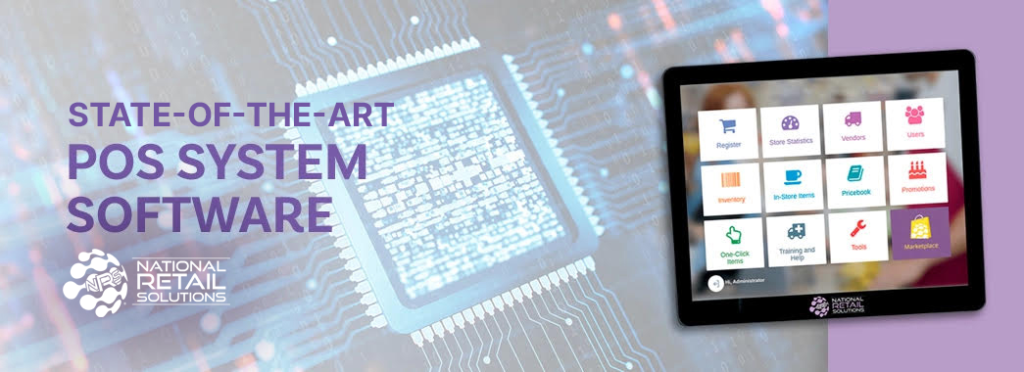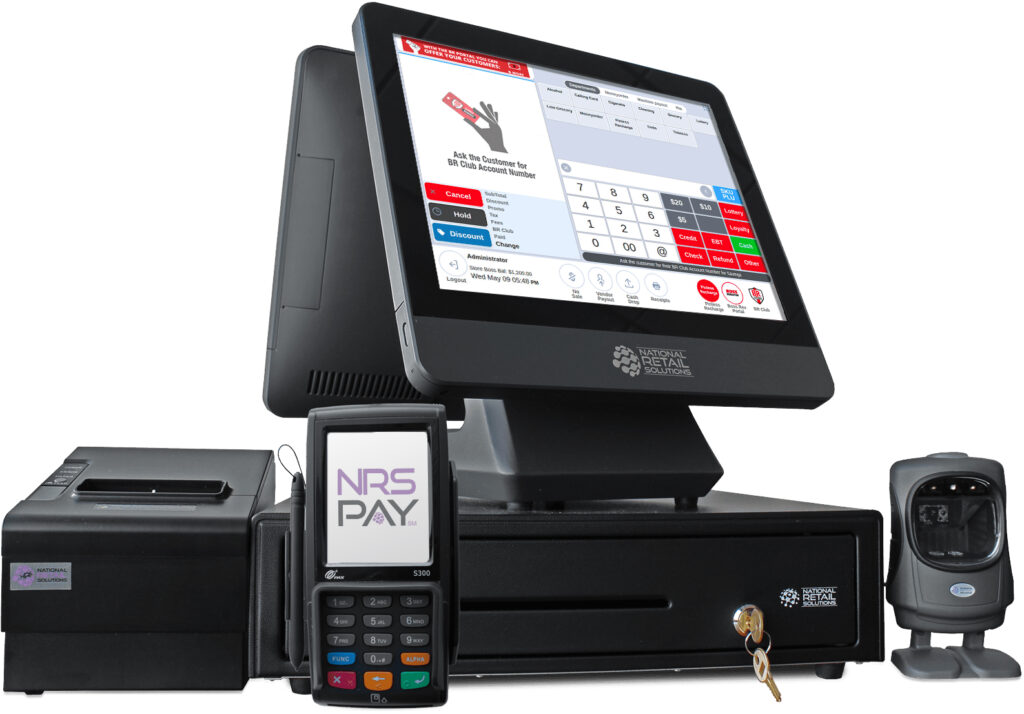Elie Y. Katz is president & CEO of National Retail Solutions (NRS). Seven years
ago, he brought his many years of experience as an executive at various
companies, in diverse industries, plus strong leadership, interpersonal and
organizational skills, to found National Retail Solutions (NRS). Elie is
additionally currently Deputy Mayor of Teaneck, NJ, having served previously
as Mayor. He also manages real estate properties (commercial, mixed use
and land) and food establishments (thirteen food businesses, including
bakeries, restaurants, and take-out). Elie possesses a keen business savvy,
with an understanding of the value of investment, generation of revenue and
business growth leadership from creation and acquisition, through exit.
National Retail Solutions, a subsidiary of IDT (NYSE: IDT), is a provider of a
point of sale network and credit card processing ecosystem which services
close to 17,000 independent retailers across the US.
FMM: When and why did you found National Retail Solutions?
I founded NRS in 2015 with a mission of helping small, independent retailers survive and thrive amidst big-box competition. As an owner of a few smaller businesses myself, this is personal – I really feel for the Mom ’n’ Pop retailers whose livelihood is threatened by larger stores luring away their foot traffic. Big box stores have larger budgets and benefit from advantages of volume purchasing and being able to offer discounted pricing. Our point of sale system is custom-built to help stores organize, attract customers and increase revenue. We offer a free, built-in customer loyalty coupon program plus many included bells and whistles. With affordable technology and NRS Pay credit card acceptance that NRS provides, our retailers can effectively compete.
FMM: National Retail Solutions (NRS) is the leading POS provider for independent retailers, but it also has a state-of-the-art digital-out-of-home network, NRS Digital Media. What is the benefit for brands to advertise with NRS?
Yes, with over 17,000 consumer-facing digital screens in 5,000+ zip codes nationwide, NRS is the leading in-store digital network by location count in the US. Brands and advertisers can reach particular audiences in minutes with dynamic, contextual, and time-relevant ad messaging.
Visitors to our locations represent all demographics, language preferences, and income levels, and they visit consistently and routinely; our stores average 8,500 weekly visits with a weekly ad frequency of four.
We give advertisers maximum buying flexibility by enabling them to build highly customized networks to deliver ad messaging to particular audiences. This flexibility allows them to reach consumers by demographic in their community store with tailored messaging. Incorporating language, imagery, and contextual sense in ad messaging endear; it drives awareness, consideration, trial, and loyalty. According to Horowitz Research’s recent State of Consumer Engagement, six in ten Latinos say it is appealing to them “when a brand or product advertises in Hispanic media:”
One of my favorite campaigns was an energy company that used our data to identify optimal store locations and communicate in five languages accordingly. The brand sent a powerful signal: they recognized and showed interest in speaking with their communities, and its a privilege to be a part of work that resonates with people in that way.
” #1 Ranked POS for Small & Midsized Businesses”– Information Age Magazine
FMM: How does it work?
The NRS ad screens are part of the NRS POS system and face the consumer. POS units in our store locations are in a sentinel area near the store’s entry, and the ad screens are visible to consumers before, during, and after the check-out experience. Our stores have smaller footprints by nature which makes grabbing add-on products easy for shoppers. And, because the shopper’s ad view is within inches, it’s readable- advertisers can add required language to copy (think OTC). The close ad view also makes adding interaction drivers via message design like QR codes practical and effective.
Each ad has two creative sizes: a full-screen size that continuously loops static, animated, or video content. Once a transaction begins, the ad display size changes and plays beside the consumer’s purchase total. Transactions average about 1 minute, ad length is 10 seconds, and the loop is 60 seconds. Many advertisers repurpose social ad content using our network for it’s unique placement to extend conversations to the physical world.
We use 1st and 3rd-party data to reveal specific audience movements to determine ideal ad location placement. For example, we can identify which stores sell a brand’s specific product, then activate messaging to increase product sales. We did this recently for a spirits brand that saw a 37% lift and categorically moved to the first position in only six weeks.
While we drive results like this for CPG with our scan data and ad capability, we also drive results for non-CPG brands and advertisers by utilizing data. For instance, we can identify audiences searching insurance options online and understand their daily, or “offline” movement. We combine that intel with our audience data, which indexes behaviors like “plans to switch auto insurance in the next 12 months” and reveals which NRS locations over-index for visitors with that intent. Then, we build custom, optimizable networks to engage them during that movement or daily routine- on their way to work, to the movies, meet friends, or during a quick stop for snacks on a day out.
It’s important to note that NRS Digital Media is Geopath audited. Geopath is a not-for-profit tripartite agency that provides the audience measurement standard for the out-of-home advertising industry. Brands require verifiable media measurement, preferably 3rd party- and they should.

FMM: Which brands are perfect for NRS Digital Media ads? Where can we find it?
Insurance, Telecom, Fintech, Banking, Education, Health and Wellness, Public Health, Gaming, Lottery, DTC, and E-Commerce perform exceptionally well using our network. Those categories make up about half of our ad portfolio, which may surprise some. But, if I had to name a “perfect fit,” it is CPG and Beverage brands. Because we operate the POS system network-wide, we have visibility of every store’s store scan data- by UPC, store, and day. A brand’s ability to see category, basket and sales performance at SKU level in independent stores at scale wasn’t available or accessible before NRS. Now, brands using NRS data to identify, quantify, and activate opportunities have realized growth through the NRS network that outpaces other retail channels.

FMM: This idea of ‘Convenience Culture’ is trending. What does that mean, why is it growing, and why does it matter?
American demand for convenience is not new, but the last few years have revived and increased expectations uniquely. Smaller format convenience stores now account for 25% of fast-moving consumer goods and 70% of shopping trips. Millennials prefer C-stores +5% points above any generational group and only 1% behind e-commerce sites such as Amazon. Our POS ecosystem helps our retailers meet this demand, and our digital ad network provides a way for brands and advertisers to communicate with the customers they serve.
FMM: “Adverclutter” or ad messaging across devices and in the physical world pose a challenge to consumer attention. How does NRS overcome that to promote and sell to consumers effectively?
Our ad screens are high definition and 15″ diagonally, and viewability is nearly 6ft. The stores in our network have smaller footprints by nature, so the screen is prominent, especially when the customer is inches away from it during the purchase experience or waiting in line for their turn. The distinction of our media is that consumers must engage with it, unlike most in-store digital media. It’s unavoidable; consumers look at the screen to see their purchase totals and payment options populate.
Effective ad reach and performance are a combination of engaging messaging informed by data and context then delivered to audiences during highly engaged moments when they are most receptive. We deliver all of these inside an important experience: when a consumer is making a purchase decision, usually with their money and phone in hand. The ability to deliver in this moment drives meaningful outcomes for our advertisers, whether selling more products or promoting search, and we can prove it.



